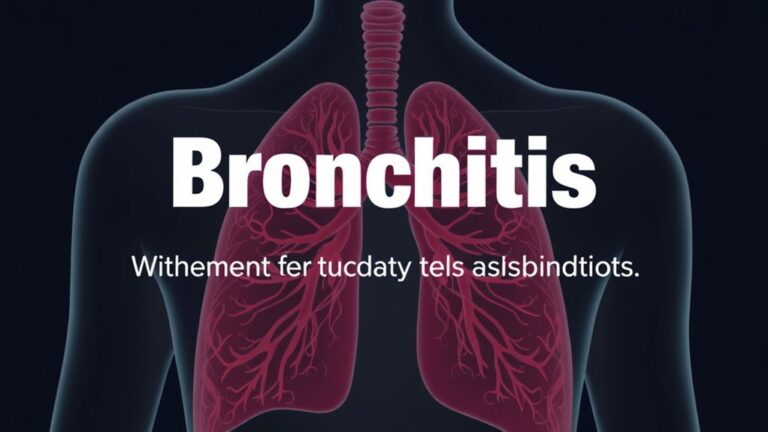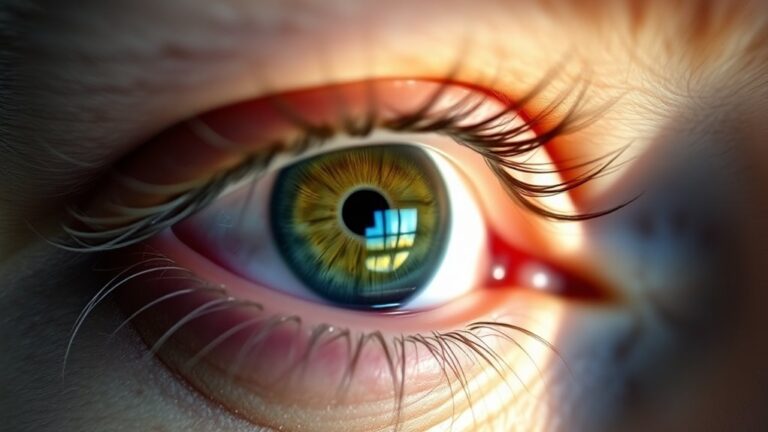Locked jaw is when your jaw can’t move properly. This article explains the symptoms, causes, and treatments. Learn how to identify this condition, what might cause it, and how to treat it.
Key Takeaways
- Locked jaw, or jaw locking, manifests as an inability to open or close the mouth properly, often accompanied by symptoms such as pain, stiffness, and difficulty in speech.
- The condition can stem from various causes, including trauma, TMJ disorders, stress, infections, and certain medications, making awareness of these factors critical for identification and treatment.
- Effective management can include self-care techniques, professional treatments such as physical therapy or medication, and preventive measures like stress management and regular dental check-ups to reduce the risk of developing locked jaw.
What is Locked Jaw
Recognizing the initial signs and symptoms of lock jaw enables early intervention and effective management. Locked jaw, also known as jaw lock or jaw locking, is characterized by the inability to open or close the mouth properly, often resulting in a closed position. This condition can lead to significant stiffness in the jaw muscles and restrict jaw movements, making everyday activities challenging.
Before the jaw locks completely, individuals may experience distress and painful attempts to reposition the jaw. The difficulty in speaking clearly is another sign that often accompanies jaw locking. Recognizing these early symptoms can help you take prompt action to alleviate discomfort and prevent the condition from worsening.
Common Symptoms
The first symptoms of locked jaw often include the inability to open the mouth wide wider than 1.4 inches (35 millimeters). This restriction in jaw movement can make chewing, speaking, and even swallowing difficult. Individuals might notice facial and neck pain, which can be accompanied by trouble swallowing, difficulty in speech, and drooling.
These common symptoms are indicative of the underlying issues affecting the jaw muscles and joints. Timely identification of these symptoms can lead to effective treatments, reducing complications and improving quality of life.
Severe Symptoms
In more severe cases, locked jaw can manifest in ways that require immediate medical attention. One of the most alarming severe symptoms is difficulty breathing, which indicates a critical need for urgent care. Significant neck pain and intense discomfort are also signs that the condition is worsening and needs professional intervention.
If left untreated, locked jaw can lead to joint deterioration and ligament damage, resulting in chronic pain that impacts daily activities. Prompt medical attention for severe symptoms is essential to prevent long-term complications and ensure adequate treatment.
Causes of Locked Jaw
Locked jaw can arise from a variety of causes, ranging from physical injuries to underlying medical conditions. Trauma to the jaw, TMJ disorders, oral infections, and certain medications are among the common causes. Each of these factors can contribute to inflammation and swelling in the jaw area, leading to restricted movement and discomfort.
Other contributing factors include stress, heredity, and dental issues like misplaced teeth. Low calcium levels from thyroid surgery or medications can also cause muscle spasms leading to locked jaw, while infections such as tetanus can result in similar symptoms. Knowing these causes aids in identifying the underlying issue and seeking appropriate treatment.
Temporomandibular Joint Disorders
Temporomandibular disorder (TMD) is a significant cause of locked jaw. These disorders cause pain in the jaw joint and surrounding muscles, leading to severe pain and discomfort. Individuals with TMD may experience discomfort when chewing, often accompanied by a clicking sound or grinding feeling, which can be related to temporomandibular joint dysfunction, tmj dysfunction, tmj problems, and temporomandibular joint tmj disorder.
Chronic pain from untreated locked jaw can radiate to the face, neck, and shoulders, affecting daily life. A misaligned bite can also contribute to TMJ disorders, worsening symptoms and necessitating treatment from a specialist.
Stress and Bruxism
Stress is a common factor that can lead to involuntary jaw clenching and teeth grinding, often without the individual being aware. Bruxism, the repetitive clenching of the jaw and grinding of the teeth, contributes to jaw lock by causing increased tension in the jaw muscles. This can result in tightness, soreness, and pain in the neck, jaw, and face, along with headaches and earaches.
Relaxation techniques and mindfulness can significantly reduce stress-induced jaw clenching. Physical activity, along with practices like meditation and yoga, can alleviate stress, reducing the likelihood of bruxism and related jaw complications.
Infections and Medications
Infections such as tetanus can cause muscle spasms that lead to a locked jaw due to systemic effects on muscle function. Tetanus infection affects the nervous system, blocking nerve signals that result in muscle tension and spasms. Oral infections, like a peritonsillar abscess, can also lead to lockjaw by affecting the jaw muscles.
Certain medications, including anti-nausea and antipsychotic medications, can result in locked jaw by causing muscle spasms and stiffness. Awareness of these potential side effects and seeking proper treatment if symptoms arise is important.
2. Jaw Injuries and Trauma
Physical injuries to the jaw or face, such as fractures, dislocations, or blows to the jaw, are common causes of locked jaw. These injuries can lead to significant inflammation and swelling, restricting jaw movement and causing pain. Immediate medical attention is often required to address these issues and prevent long-term complications.
4. Infections
Bacterial or viral infections affecting the jaw and surrounding muscles can result in locked jaw. For example, tetanus caused by clostridium tetani can cause muscle rigidity and jaw lock due to its systemic impact on muscle function. Proper treatment of these infections is essential to prevent severe symptoms and complications.
5. Arthritis and Joint Disorders
Arthritis, including rheumatoid arthritis and osteoarthritis, can significantly affect jaw mobility. These joint conditions lead to a degenerative process resulting in joint stiffness and pain, contributing to the development of locked jaw.
Early diagnosis and treatment of arthritis are vital for managing symptoms and maintaining jaw functionality.
7. Medications and Side Effects
Certain medications, such as antipsychotic drugs, can contribute to muscle spasms or jaw stiffness, leading to locked jaw. Understanding the side effects of these medications and seeking proper treatment can help manage these symptoms and prevent jaw locking.
8. Genetic Factors
Hereditary factors can predispose individuals to jaw locking. Familial links to conditions like TMD and other jaw-related disorders indicate that genetics can play a role in the development of locked jaw.
Awareness of these risk factors aids in early detection and management.
Symptoms of Locked Jaw
The symptoms of locked jaw can vary widely, from mild discomfort to severe pain and functional limitations. Profuse salivation and difficulty swallowing are common symptoms that can significantly affect daily activities.
Individuals may also experience stiffness or pain that impacts their quality of life.
1. Pain and Discomfort
Pain and discomfort are among the most common symptoms of locked jaw. Individuals may experience pain in the jaw joint, face, and neck, with sensations ranging from dull and throbbing to sharp and intense. A constant sensation of tightness in the facial muscles and cramping in the jaw can also occur.
2. Difficulty Opening the Mouth
One of the hallmark symptoms of locked jaw is the difficulty in opening the mouth fully, which can be described as an open or closed position. This limitation can lead to asymmetrical mouth opening, making activities like eating and speaking challenging.
Recognizing these symptoms can prompt timely treatment.
3. Clicking or Popping Sounds
Clicking or popping sounds coming from the jaw joint during movement are common indicators of underlying issues. These sounds can signify dysfunction in the temporomandibular joint, hinting at potential problems that need attention.
4. Muscle Spasms
Muscle spasms in the jaw contribute significantly to the locking of the jaw. These involuntary spasms can cause severe discomfort and further restrict jaw movement. Managing muscle spasms is crucial for effectively treating locked jaw.
5. Swelling Around the Jaw or Neck
Swelling around the jaw or neck can be a sign of inflammation or infection. In such cases, seeking medical attention is crucial to address the underlying issue and prevent further complications.
6. Headaches and Facial Pain
Headaches and chronic facial pain are often associated with locked jaw due to the strain it places on the facial muscles. Persistent facial pain is a common symptom of jaw dysfunction and can significantly impact daily life.
Ongoing strain on the neck and jaw muscles can also lead to tension headaches.
Immediate Steps to Take When Experiencing Locked Jaw
When you experience a locked jaw, it’s essential to take immediate steps to manage the condition and alleviate discomfort. Staying calm is important, as anxiety can increase muscle tension and worsen symptoms. If you are unable to reposition your jaw, it is crucial to seek medical attention. Make sure to schedule an appointment with a healthcare provider.
Self-care methods, such as avoiding clenching and applying heat or ice, can also help alleviate symptoms.
Stay Calm and Apply Gentle Pressure
When dealing with a locked jaw, maintaining a calm demeanor can help prevent further muscle tension. Engaging in deep breathing exercises can reduce anxiety and muscle relaxers stiffness.
Applying gentle pressure to the jaw and using a cold compress or warm compress can relax the muscles and provide relief from pain.
Jaw Exercises
Simple jaw exercises can loosen tight jaw muscles and improve movement. Exercises like the smile stretch, where you make a wide smile while slowly open your mouth, and gently pushing the tongue against the roof of the mouth while opening the jaw, can enhance flexibility.
Regularly practicing these exercises can prevent locked jaw.
Professional Treatment Options for Locked Jaw
For those experiencing persistent or severe symptoms of locked jaw, professional treatment options are available. Treatment often combines medications and therapies to address the cause and alleviate symptoms. Common treatments include muscle relaxants and physical therapy to improve jaw flexibility and reduce stiffness.
Good posture while chewing can also reduce discomfort.
Non-Surgical Treatments
Physical therapy effectively treats locked jaw by improving flexibility and reducing stiffness. Medications like ibuprofen, antidepressants, and muscle relaxants can help relieve jaw discomfort. Bite guards are also used to stabilize the jaw and prevent uneven pressure, alleviating TMJ symptoms.
Conservative treatments like warm compresses, gentle massages, and an ice pack can relax tight jaw muscles and provide relief.
Surgical Interventions
In severe cases where non-surgical treatments fail, procedures like:
- arthrocentesis
- arthroscopy
- open joint arthroplasty
- total joint replacement
may be necessary. Surgery is typically considered only when other treatment options have not been successful.
Preventing Locked Jaw
Prevention strategies can help reduce the risk of developing locked jaw. Cognitive behavioral therapy can teach patients to manage pain associated with TMJ disorders. Avoiding trigger medications and promptly treating TMJ issues can also prevent locked jaw.
If your jaw locks, staying relaxed is crucial to ease tension and prevent worsening symptoms.
Managing Stress
Stress management is vital in preventing jaw-related problems. High levels of stress can lead to bruxism, which exacerbates issues with the jaw.
Techniques like meditation, deep breathing, and yoga can effectively manage stress, reducing the risk of bruxism and related jaw complications.
Regular Dental Check-Ups
Regular dental check-ups are essential for early detection and prevention of TMJ disorders. Regular dental visits can identify early TMJ signs and prevent complications. Maintaining dental hygiene through regular check-ups reduces the risks associated with TMD and improves overall oral health, helping to prevent dental diseases and dental problems.
Long-Term Effects of Untreated Locked Jaw
Untreated locked jaw can lead to significant long-term effects, including chronic jaw pain spreading to the face, neck, shoulders, and lower jaw. This pain can become debilitating, affecting daily activities, emotional well-being, and physical capability.
Ongoing joint inflammation from untreated locked jaw can also result in:
- tension headaches
- migraines
- ligament damage
- joint deterioration
- pain during normal jaw movements
Joint Deterioration
Prolonged untreated locked jaw can lead to serious risks, including joint deterioration and the necessity of surgical intervention. Extended untreated locked jaw can lead to persistent joint damage and limited mouth movement. Additionally, it can prevent the jaw’s disc from shifting back into its proper position when opening the mouth.
Chronic Pain
Untreated locked jaw can lead to chronic pain, significantly affecting overall quality of life. This chronic pain can hinder daily activities and interactions, making it essential to seek timely treatment.
Tingling sensations and long-term discomfort are potential consequences of prolonged untreated locked jaw.
When to Seek Medical Help
If you experience sudden lockjaw without prior diagnosis, it is crucial to seek medical help immediately. Medical attention is necessary if symptoms persist or worsen, including severe TMJ pain.
A healthcare provider may request imaging studies, blood tests, or a biopsy to evaluate the condition properly. Consulting a TMJ specialist can help tailor treatment options based on the evaluation results.
Emergency Situations
Immediate medical intervention is necessary if a locked jaw is accompanied by breathing difficulties. Signs that necessitate an ER visit include:
- the inability to breathe
- the inability to drink
- the inability to open the mouth
- signs of infection such as fever
- severe pain
- swelling
- bleeding
- bad breath
Locked jaw can be considered a dental emergency depending on its severity and underlying cause.





